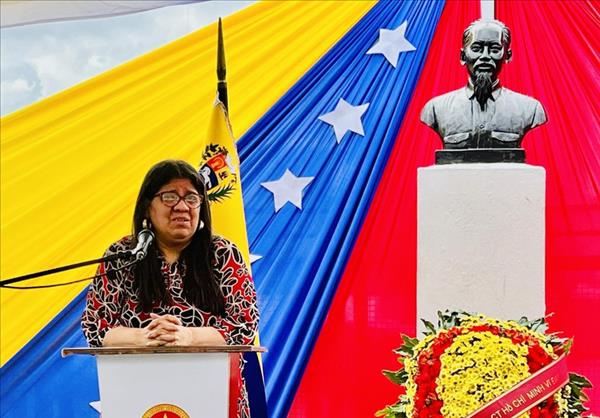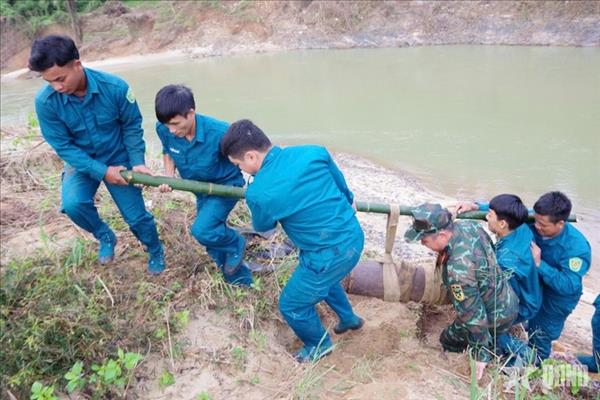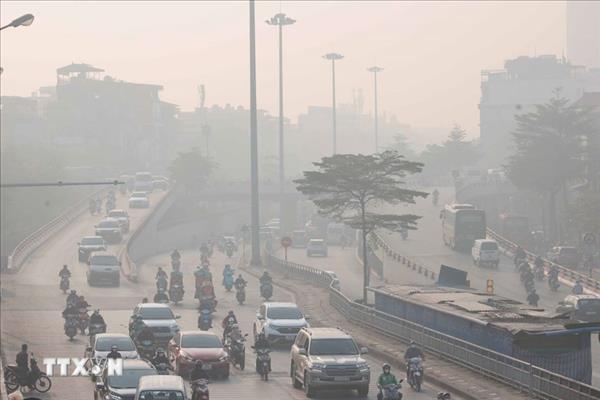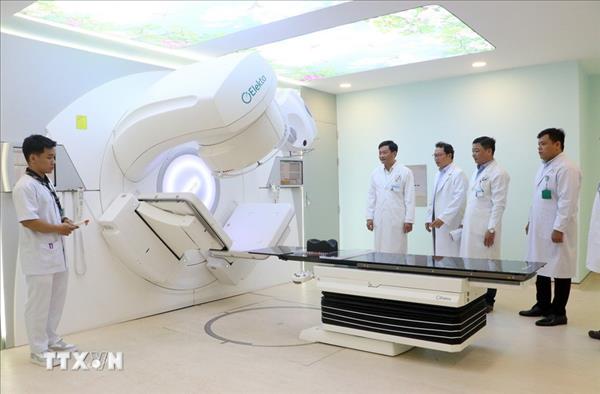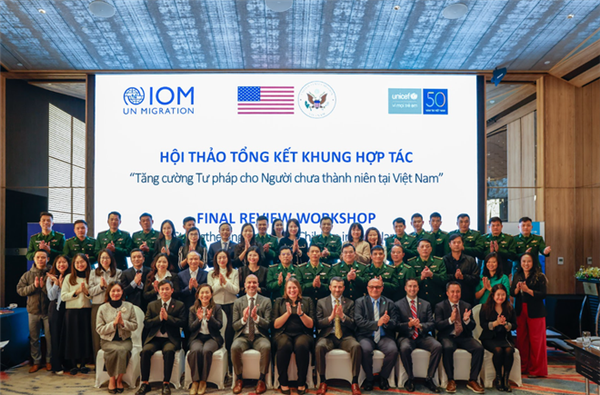The event gathered representatives of the HCM City authorities, families of the war martyrs, war veterans, and local residents.
Huynh Van Chum, Vice Chairman of the municipal Party Committee’s Commission for Information and Education, recalled the fierce battle when 11 liberation soldiers fought hard to take control of the then Sai Gon radio station in the early morning of the second day of the 1968 lunar year. Ten of them died during the fighting.
The monument reflects the city’s deep gratitude toward the soldiers and the local armed forces, aiming to promote national patriotism among younger generations.
The monument is located inside the VOH headquarters at No 3 Nguyen Dinh Chieu Street in District 1. Built on an area of 79 m2, its design depicts the shape of two soldiers, both made of bronze.
The monument is one of nine structures crafted across the southern economic hub in commemoration of martyrs of the 1968 Genral Offensive and Uprising.
The Offensive began in the early morning of January 31 in 1968 when liberation forces simultaneously launched attacks on bases of US troops and the US-backed southern government in cities such as Hue, Da Nang, Quy Nhon and Saigon, and hundreds of towns from Quang Tri to Ca Mau.
Sai Gon-Gia Dinh (now HCM City), the headquarters of the US-backed Southern regime, was a focus of the offensive.
The fight helped destroy huge amounts of facilities and logistics used by the US and the southern regime’s armies. The seven-month long campaign ended with tens of thousands of enemy troops dead, 600 strategic hamlets destroyed and 100 communes liberated with a population of 1.6 million people.
The event marked a strategic turning point for the resistance war against the US and its allies. It caused the US a ‘sudden shock’, disrupting their strategic plan, shaking the White House, the Pentagon and all of the US and forced President Johnson to deescalate the war and agree to sign the historic Paris Peace Accord. The victory also helped lead to the liberation of southern Vietnam and national reunification in 1975.-VNA/VNP

